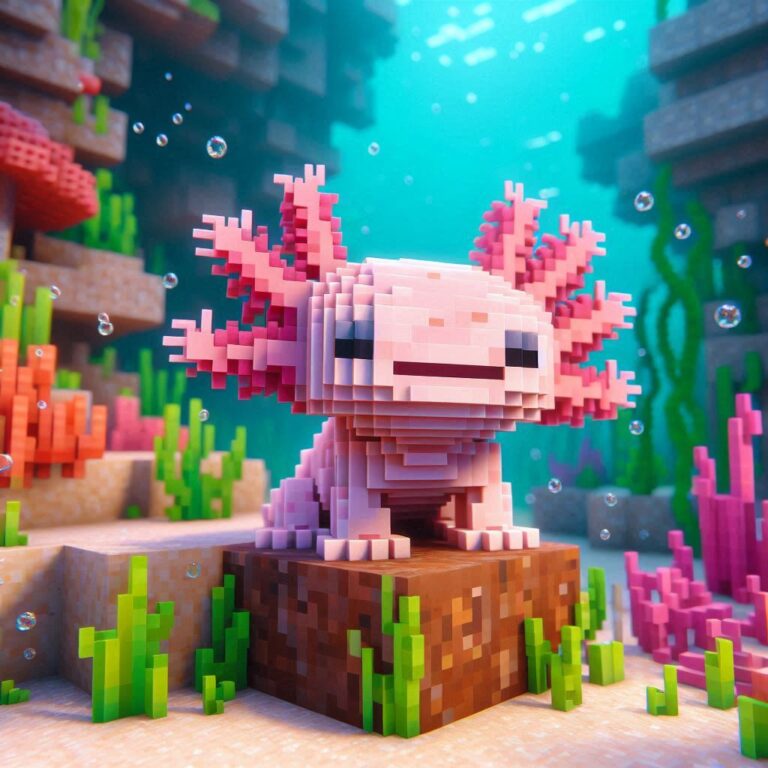
Axolotls, fascinating amphibians native to Mexico, possess delicate digestive systems that require careful consideration when selecting their diet. While they may exhibit curiosity towards various food items, hot dogs are not suitable for their consumption. Hot dogs present significant risks to axolotls, primarily due to their texture and high sodium content. The rubbery consistency of hot dogs poses a choking hazard to axolotls, potentially leading to respiratory distress or blockages in their digestive tract. Furthermore, the excessive sodium levels in hot dogs can disrupt the delicate balance of electrolytes in axolotls, potentially resulting in dehydration and kidney problems. To ensure the health and well-being of these unique creatures, it’s crucial to offer them a diet consisting of appropriate foods such as live or frozen prey items and commercially available axolotl pellets formulated to meet their nutritional needs.
Risks of Feeding Hot Dogs to Axolotls
Feeding hot dogs to axolotls poses several risks that can compromise their health and well-being. While these amphibians may exhibit a curious nature towards various food items, hot dogs present particular dangers due to their composition. One significant risk is the high sodium content found in hot dogs, which far exceeds the dietary requirements of axolotls. Excessive sodium intake can disrupt the delicate balance of electrolytes in their bodies, leading to dehydration and potential kidney problems. Additionally, hot dogs often contain additives, preservatives, and seasonings that are harmful to axolotls, as their digestive systems are not equipped to process such ingredients.
Moreover, the rubbery texture of hot dogs poses a choking hazard to axolotls, as they lack the ability to chew their food and may attempt to swallow large pieces whole. This increases the risk of respiratory distress or blockages in their digestive tract, which can be life-threatening. To mitigate these risks, axolotl owners should avoid feeding hot dogs altogether and instead opt for a diet consisting of nutritionally balanced alternatives such as live or frozen prey items and specialized axolotl pellets.
Choking Hazard
One of the primary risks associated with feeding hot dogs to axolotls is the potential choking hazard they present. Axolotls, with their curious and voracious feeding behavior, may attempt to ingest hot dogs without properly chewing them. Unlike mammals, axolotls lack teeth and the ability to break down food into smaller pieces before swallowing. As a result, large chunks of hot dogs can become lodged in their throat or digestive tract, obstructing the airway and impeding proper digestion. This can lead to respiratory distress, difficulty breathing, and even suffocation if not promptly addressed. To prevent such incidents, axolotl owners should refrain from offering hot dogs as a food source and instead provide appropriately sized prey items or pellets that are easier for the axolotls to consume safely.
Digestive Issues
Feeding hot dogs to axolotls can also result in various digestive issues that compromise their overall health. Hot dogs are highly processed and contain ingredients such as fillers, additives, and seasonings that are not suitable for axolotls’ delicate digestive systems. Consuming hot dogs can lead to gastrointestinal distress, including nausea, vomiting, diarrhea, and bloating, as their bodies struggle to process and absorb the unfamiliar substances. Moreover, the high fat content in hot dogs can further exacerbate digestive issues, potentially causing pancreatitis or fatty liver disease in axolotls. To maintain optimal digestive health, axolotl owners should prioritize offering a diet consisting of natural, species-appropriate foods such as live or frozen prey items. Supplemented with commercially available axolotl pellets formulated to meet their nutritional needs.
Nutritional Value of Hot Dogs for Axolotls
Despite being a popular human food, hot dogs lack the essential nutritional elements required to sustain the health of axolotls. These amphibians have specific dietary needs that cannot be met by processed foods like hot dogs. While hot dogs may provide some macronutrients like protein and fat, they often lack essential vitamins, minerals, and other micronutrients crucial for axolotl health. Therefore, relying on hot dogs as a primary source of nutrition for axolotls can lead to deficiencies and health problems over time. Axolotl owners should prioritize offering a diverse diet consisting of live or frozen prey items and commercially available axolotl pellets to ensure their pets receive all the nutrients they need to thrive.
Protein Content
While hot dogs contain protein, it’s important to consider the quality and source of this protein for axolotls. Hot dogs are typically made from processed meats and may contain low-quality protein sources such as mechanically separated chicken or pork. Additionally, hot dogs often contain fillers and additives that dilute the protein content and may not provide the necessary amino acids required for axolotl growth and maintenance. Therefore, while axolotls may derive some protein from consuming hot dogs. It’s not an ideal or sustainable source of protein for their diet. Axolotl owners should focus on offering high-quality protein sources such as earthworms, bloodworms, and brine shrimp to ensure their pets receive adequate nutrition.
Fat Content
Hot dogs are notorious for their high fat content, which can pose health risks to axolotls if consumed regularly. While axolotls require some fat in their diet for energy and essential fatty acids, excessive fat intake can lead to obesity, fatty liver disease, and other health issues. Moreover, the type of fat found in hot dogs is often unhealthy saturated and trans fats. Which can further increase the risk of cardiovascular problems in axolotls. Therefore, axolotl owners should be cautious about feeding hot dogs to their pets and instead opt for leaner protein sources and balanced commercial axolotl pellets to maintain optimal fat intake.
Sodium Levels
One of the most concerning aspects of feeding hot dogs to axolotls is their high sodium content. Axolotls are freshwater creatures with sensitive osmoregulatory systems. Meaning they cannot tolerate high levels of salt in their environment or diet. Excessive sodium intake from hot dogs can disrupt the electrolyte balance in axolotls, leading to dehydration, kidney problems, and other health complications. Additionally, the high sodium content in hot dogs can exacerbate issues such as bloating and edema in axolotls, further compromising their health. Therefore, axolotl owners should avoid feeding hot dogs to their pets and instead provide low-sodium food options such as live or frozen prey items and specialized axolotl pellets formulated specifically for their nutritional needs.
Raw Hot Dogs vs Cooked Hot Dogs
The debate between raw and cooked hot dogs for axolotls revolves around safety and nutritional value. Raw hot dogs, while seemingly more natural, pose a higher risk of bacterial contamination, as they haven’t undergone the cooking process to eliminate harmful pathogens. On the other hand, cooked hot dogs are generally considered safer due to the heat treatment, which kills bacteria that could otherwise cause illness in axolotls. However, both options come with their own set of considerations, including potential alterations in nutritional composition during cooking. Axolotl owners must carefully weigh these factors when deciding whether to offer raw or cooked hot dogs to their pets.
Potential Bacterial Contamination
Raw hot dogs present a significant risk of bacterial contamination, as they are typically made from ground meats and may contain pathogens such as Salmonella, E. coli, and Listeria. These bacteria can cause severe gastrointestinal infections and other health issues in axolotls if ingested. Therefore, axolotl owners should exercise caution when considering feeding raw hot dogs to their pets and ensure proper food handling and hygiene practices are followed to minimize the risk of bacterial contamination. Cooked hot dogs, while safer in terms of bacterial concerns, may still harbor bacteria if not handled and stored properly after cooking.
Alteration in Nutritional Composition
The cooking process can lead to alterations in the nutritional composition of hot dogs. Which may impact their suitability as a food source for axolotls. While cooking can destroy harmful bacteria, it can also result in the loss of certain nutrients, such as vitamins and minerals, due to heat sensitivity. Additionally, the high temperatures involved in cooking can cause protein denaturation and fat oxidation. Potentially affecting the digestibility and bioavailability of nutrients in hot dogs. Axolotl owners should be mindful of these changes and consider whether the nutritional benefits of cooked hot dogs outweigh the risks associated with feeding processed foods to their pets. Ultimately, offering a varied diet consisting of live or frozen prey items and nutritionally balanced axolotl pellets is recommended to ensure optimal nutrition and health for axolotls.
Pros and Cons of Eating Hot Dogs for the Axolotl

Hot dogs, a popular convenience food among humans, have found their way into discussions about axolotl diets. However, like any food choice, there are both pros and cons to consider when contemplating feeding hot dogs to axolotls. Understanding these factors is essential for making informed decisions about the dietary health of these unique amphibians.
Pros
Convenience
One of the primary advantages of feeding hot dogs to axolotls is convenience. Hot dogs are readily available at most grocery stores and require minimal preparation before serving. For axolotl owners with busy schedules or limited access to other food options. Hot dogs can be a convenient choice for supplementing their pets’ diets.
Palatability
Some axolotls may find hot dogs palatable due to their strong odor and flavor. This can be beneficial for enticing picky eaters or encouraging axolotls to consume new food items. Additionally, the texture of hot dogs may appeal to axolotls’ natural feeding behaviors, making them more likely to accept and consume this food source.
Cons
Lack of Nutritional Value
One of the most significant drawbacks of feeding hot dogs to axolotls is their lack of nutritional value. While hot dogs may contain protein, they are often highly processed and lack essential vitamins, minerals, and other nutrients necessary for axolotl health. Relying on hot dogs as a primary food source can lead to nutritional deficiencies and health problems in axolotls over time.
Health Risk
Feeding hot dogs to axolotls can pose various health risks, including choking hazards, digestive issues, and potential bacterial contamination. The rubbery texture of hot dogs increases the risk of choking, especially for axolotls that attempt to swallow large pieces whole. Additionally, the high sodium content and additives found in hot dogs can disrupt axolotls’ delicate digestive systems and lead to dehydration, kidney problems, and other health complications.
FAQs
1. Can Axolotls safely consume hot dogs?
A. Hot dogs pose a choking hazard to axolotls and can cause digestive issues. Therefore, it’s not recommended to feed them hot dogs.
2. Are hot dogs a nutritious choice for axolotls?
A. Hot dogs lack essential nutrients required for axolotl health. While they contain protein, they are also high in fats and sodium, which may be harmful to axolotls.
3. What risks are associated with feeding hot dogs to axolotls?
A. Hot dogs can lead to potential choking hazards due to their texture, and their high sodium content can cause health issues such as dehydration and kidney problems in axolotls.
4. Can axolotls eat raw hot dogs?
A. Raw hot dogs may contain harmful bacteria that can cause illness in axolotls. It’s safer to avoid feeding them raw hot dogs altogether.
5. What precautions should be taken if feeding cooked hot dogs to axolotls?
A. Cooked hot dogs should be cut into very small, manageable pieces to minimize the risk of choking. Additionally, ensure they are free from any additives or seasonings that could harm the axolotl.
6. Do hot dogs provide any nutritional benefits to axolotls?
A. While hot dogs contain protein, they lack many essential nutrients required for axolotl health. Therefore, they are not considered a nutritious choice for axolotls.
7. How often can axolotls eat hot dogs?
A. Hot dogs should not be a regular part of an axolotl’s diet. Feeding them occasionally as a treat, if at all, is the best approach to avoid health issues.
8. Are there any alternatives to hot dogs that are safer for axolotls?
A. Yes, axolotls can be fed a variety of live or frozen foods such as earthworms, bloodworms, brine shrimp, and commercially available axolotl pellets, which are nutritionally balanced and safer options.
9. What should I do if my axolotl accidentally ingests a piece of hot dog?
A. If your axolotl accidentally consumes a piece of hot dog and shows signs of distress or choking, immediately remove any remaining food from the tank and monitor its behavior. If symptoms persist, consult a veterinarian specializing in exotic pets.
10. Can axolotls develop health issues from consuming hot dogs?
A. Yes, axolotls can develop health issues such as gastrointestinal distress, dehydration, and kidney problems from consuming hot dogs due to their high sodium content and lack of essential nutrients.
Conclusion
In conclusion, while hot dogs may seem like a convenient and potentially palatable option for axolotl diets, their drawbacks outweigh their benefits. The lack of essential nutrients, coupled with the potential health risks such as choking hazards, digestive issues, and bacterial contamination, make hot dogs an unsuitable choice for sustaining the health and well-being of axolotls. As responsible axolotl owners, it’s imperative to prioritize offering a varied and balanced diet consisting of natural, species-appropriate foods such as live or frozen prey items and specialized axolotl pellets.

Hassan Shah carries over four years of hands-on expertise in caring for axolotls, guided by his cherished companion ‘Little Bruno,’ a thriving axolotl under his attentive care for three years.



